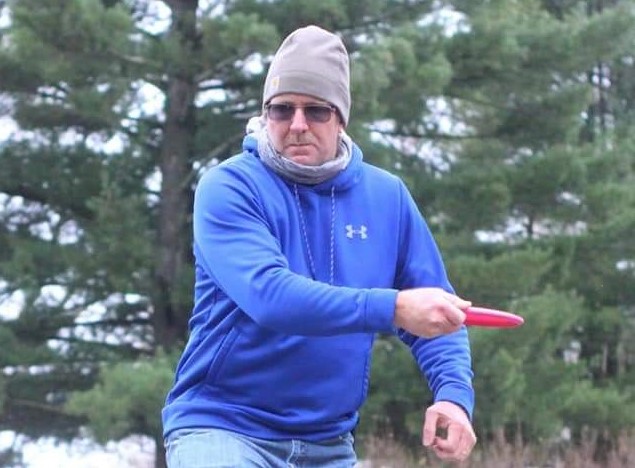Among the millions of Americans affected by the COVID-19 pandemic are people living with severe knee or hip pain in need of a joint replacement. The shutdown of elective surgical cases throughout the country in early 2020 meant that 300,000 people have had their total joint replacement surgeries cancelled or delayed.
Meet Alan Detmers, Jr., a 54-year-old safety manager for a trucking company in rural north-central Illinois
Alan was one of the millions of Americans waiting for their joint replacement surgery. He loves being active and is an avid disc golf player. In recent years, he began suffering from hip pain that was getting progressively worse. It got to the point where the pain was impacting his job, which requires climbing in and out of trucks and walking on loading docks. He was looking forward to having a total hip replacement on March 31. Because of COVID-19, his surgery was cancelled, and he didn’t know when it would be rescheduled.
Mr. Detmers has some advice for other surgical patients on navigating the healthcare system – and their emotions – during the pandemic. His surgeon, Henry Finn, MD, medical director of the Chicago Center for Orthopedics and Robotic-Assisted Surgery and Professor of Orthopedic Surgery at the University of Chicago, has some thoughts on the situation too.
The Sooner the Better
Mr. Detmers wished he acted sooner in scheduling his surgery.
“I got my final cortisone shot in December 2019, and it lasted only three weeks. Leading up to the surgery, I had to take a lot of Tylenol to ease the pain, which was really starting to affect my back and other hip because I was not walking properly. My quality of life was starting to suffer.”
Dr. Finn said concern about COVID has motivated many patients to go ahead with their joint replacement sooner in recent months rather than risking a long delay if faced with another shutdown.
Get Comfortable in the Unknown
“Waiting for surgery was frustrating,” Mr. Detmers added. “I tried to stay positive in the spring, but it’s hard to live in the unknown when you are in such pain. And I was worried that I would be severely limited in moving if the surgery wasn’t done soon.”
Anxious to have his hip replaced, he called Dr. Finn’s office a couple of times during the springtime shutdown, asking if he could be among the first patients once elective surgery resumed. After waiting almost three months, Mr. Detmers’ surgery was scheduled for June 9. “I was grateful to finally have the surgery to relieve my pain.”
Be Reassured on Safety
“Now that cases have resumed, we continue to follow best practices to ensure the safety of our patients and our staff,” Dr. Finn said.
Mr. Detmers noted, “Catching COVID while in the hospital did cross my mind, but I got tested for it before surgery and it was negative, so I felt better. Also, I felt the hospital took all the precautions with masking and all, so I felt very safe while I was there.”
Be Prepared to Go It Alone
Family members and friends are limited during COVID surges. Detmers’ wife was restricted from being with him during his surgery and hospital experience. “It was difficult not having my wife there. We talked a lot on the phone during my stay, but it just wasn’t the same as having her there.”
The Chicago Center for Orthopedics and Robotic-Assisted Surgery continually monitors Centers for Disease Control and Prevention (CDC) protocols on the management of visitors but believes having a loved one present makes a difference in the recovery process as long as it is safe to do so.
Think Same-day or Next day Discharge
“We are seeing that many of our patients are more motivated than ever to return home as quickly as possible, even the same day as their surgery, so our length of stay has dramatically decreased in recent months,” Dr. Finn said. “Also, patients are more interested in outpatient-based physical therapy rather than going to a rehab facility for their post-surgery therapy.”
Mr. Detmers went home a day after his surgery. “I had a good recovery over the summer. I was back on the job and able to play disc golf again by the end of August.”
Dr. Finn and his staff are catching up from a large backlog of cases postponed earlier this year.
“As we continue to reschedule postponed cases, we are seeing a surge in demand from patients concerned another shutdown and delays in surgery.”
If you have hip or knee pain and want to discuss surgical or non-surgical interventions, please call 773-564-7770.

